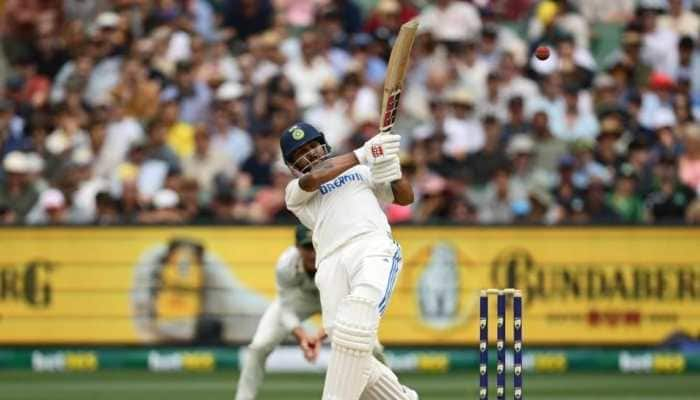Revisiting the Constitutional validity of Article 35-A
The integration of the poeple of Jammu and Kashmir with the larger Indian narrative is essential.
Trending Photos
)
Drawing strength from Article 370 (1)(d) of the Constitution of India, Article 35-A was inserted by the Constitution (Application to Jammu and Kashmir) Order, 1954. Article 370 (1)(d) empowers the President to make any exceptions or modifications with the concurrence of the Government of the State. The Supreme Court in Puranlal Lakhanpal v. The President of India AIR 1961 SC 1519 held that the President has the power to modify the Constitution under Article 370. However, it did not clarify whether he has the sole power to amend the Constitution. The Constitutional validity of Article 35-A was challenged by an NGO called We the Citizens, claiming whether an amendment shall be made without invoking Article 368 of the Constitution of India. The petition also intends that the Court shall review and revisit the provisions of Article 35-A, which it has claimed to be discriminatory to women, violating Article 14, and also Articles 14, 19 and 21, the 'Golden Triangle' of Indian Constitution.
Article 35-A reads as follows,
"Saving of laws with respect to permanent residents and their rights. - Notwithstanding anything contained in this Constitution, no existing law in force in the State of Jammu and Kashmir, and no law hereafter enacted by the Legislature of the State:
(a) defining the classes of persons who are, or shall be, permanent residents of the State of Jammu and Kashmir; or
(b) conferring on such permanent residents any special rights and privileges or imposing upon other persons any restrictions as respects-
(i) employment under the State Government;
(ii) acquisition of immovable property in the State;
(iii) settlement in the State; or
(iv) right to scholarships and such other forms of aid as the State Government may provide,
shall be void on the ground that it is inconsistent with or takes away or abridges any rights conferred on the other citizens of India by any provision of this part."
Thus, the Article defines the rights of permanent residents of Jammu and Kashmir with reference to employment, acquiring immovable property and settlement but non-permanent residents have not been given such rights.
The then Dogra ruler of the princely state of J&K, Maharaja Hari Singh, imposed a law that defined state subjects and their rights by way of notifications issued in 1927 and 1932. The law also regulated migrants to the state. To recall, the Princely state of J&K was incorporated into the territory of India through the Instrument of Accession signed by its ruler Hari Singh in October 1947. In 1949, the then leader of the state Sheikh Abdulla negotiated the state's political relationship with the Central government, which led to the inclusion of Article 370 in the Constitution.
Article 370 (1)(b)(ii) and Article 370 (1)(d) of the Constitution state that the concurrence of the state government is needed when making decisions under the Union List and the Concurrent List, apart from the subjects under the Instrument of Accession. Such concurrence is also needed for the extension of Articles of the Constitution of India to the state of Jammu and Kashmir. The power of extending laws to the state of Jammu and Kashmir was to be exercised through orders issued by the President of India. Article 370 (2) states that when the Constituent Assembly is convened, the concurrence given by the state government shall be placed before it and it can make decisions regarding the same. This indicates that this was an interim measure to determine legislative and executive relations with the state till the Constituent Assembly had been formed. Article 370 (3) states that the President can declare Article 370 to be inoperative, but only with the recommendation of the Constituent Assembly. The Supreme Court in Prem Nath Kaushal v. State of Jammu & Kashmir AIR 1959 SCR 749 had clarified that the framers of the Constitution wanted the Constituent Assembly to finally determine the relationship between India and the state. The Constitution of Jammu and Kashmir came into force in 1957, with Article 147(c) stating that no amendment can be made to the Constitution in relation to the provisions of the Constitution of India as applicable to the state; this would, for all purposes, include the relationship enshrined under Article 370. In 2015, the J&K High Court observed that Article 370 is a permanent provision of the Constitution and it cannot be abrogated, repealed or even amended as mechanism provided under clause 3 of the Article is no more available.
The Constitution of Jammu and Kashmir was framed in 1956 which retained the definition of permanent residents, as provided in the notifications issued by the Dogra ruler Hari Singh. The definition said:
- All persons born or settled within the state before 1911 or after having lawfully acquired immovable property resident in the state for not less than ten years prior to that date.
- All emigrants from Jammu and Kashmir, including those who migrated to Pakistan, are considered state subjects. The descendants of emigrants are considered state subjects for two generations.
It is to be noted that the law regulating the permanent residents prohibits non-permanent residents from permanent settlement in the state, acquiring immovable property, government jobs, scholarships and aid. It was also interpreted as discriminatory against J&K women. It disqualified them from their state subject rights if they married non-permanent residents. But, in a landmark judgment by the J&K high court in State of J&K v. Dr Sushila Swahney AIR 2003 (1) J&K, 35 held that women married to non-permanent residents will not lose their rights. However, the children of such women don't have succession rights.
The issue of possible repeal of Article 370 has always been under debate, however, the Supreme Court while hearing a PIL recently refused to entertain such a PIL which wanted Article 370 removed from the Constitution. The Bench said that the Court cannot issue such directives and it cannot ask Parliament to delete a provision because it is not for the Court to do so. It further said that the Court can strike down a provision if it is unconstitutional but it cannot ask Parliament to remove a provision.
The Constitution of India has made special provisions not only for J&K but also for a number of other states, such as Maharashtra and Gujarat (Article 371), Nagaland (Article 371 A), Assam (Article 371 B), Manipur (Article 371 C), Andhra Pradesh (Article 371 D), Sikkim (Article 371 F), Mizoram (Article 371 G) and Arunachal Pradesh (Article 371 H). The basic idea behind making special provisions for certain states is to ensure special protection of the cultural identity and customs, the original inhabitants and the economic and political interests of these areas. This is in tandem with the liberal and democratic principles and values enshrined in the Constitution. Another important feature of Indian Constitution has been that Parliament has the power to make terms and conditions as it thinks fit for organisation of a new state. This is for ensuring equitable distribution of power so that the social, cultural, economic and strategic interests of the nation are well protected.
So far as the repeal of Article 370 is concerned, it must be kept in mind that Jammu and Kashmir has been a bone of contention between India and Pakistan since 1947 and in the last few decades the separatist and terror activities have been on the rise. In this context, it is extremely important to protect our geo-strategic interests. For this, it is essential that the population of Jammu and Kashmir shall be completely integrated into India's socio-cultural milieu. Any step contradictory to this might lead to aggravate the problem of separatism.
(CBP Srivastava is an expert on the Constitution of India. He is President of the Centre for Applied Research in Governance, New Delhi.)
(Disclaimer: The opinions expressed above are the personal views of the author and do not reflect the views of ZMCL.)
Stay informed on all the latest news, real-time breaking news updates, and follow all the important headlines in india news and world News on Zee News.
Live Tv







)
)
)
)
)
)
)
)
)
)
